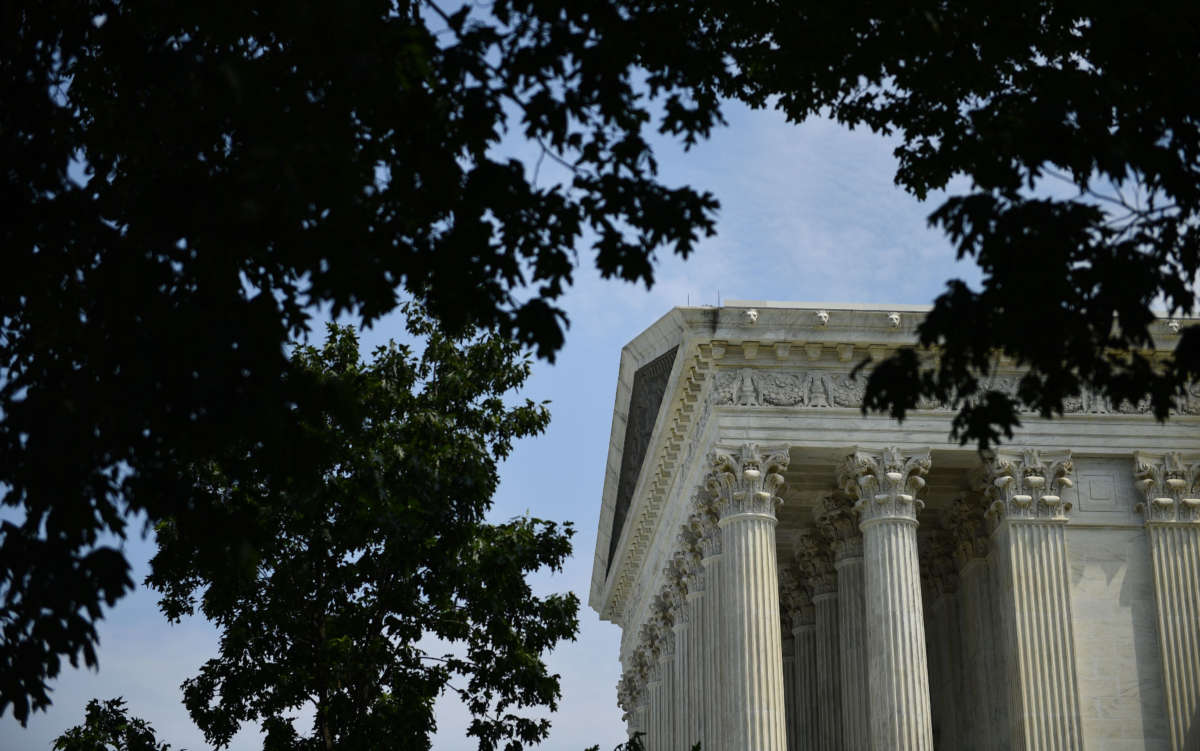The United States Supreme Court ruled on Thursday that nearly half the entire state of Oklahoma, as far as federal criminal law is concerned, is still under the jurisdiction of Native American tribes.
The plaintiff in the case, Jimcy McGirt, is a member of the Seminole Nation of Oklahoma. Although charged and convicted in state courts, McGirt argued that his case belonged in federal court because the crimes had been committed on tribal land, specifically an area that was designated as belonging to the Muscogee (Creek) Nation.
The state of Oklahoma, meanwhile, had argued that those lands were no longer “Indian Country,” even though no formal law or treaty was made that would suggest as much.
In a 5-4 decision that saw conservative Justice Neil Gorsuch siding with the four liberal bloc justices, the Court ruled in favor of McGirt, finding that major crimes committed on Native American tribal land — described as nearly the entire eastern half of the state of Oklahoma — require federal courts to rule on them, not state ones.
Gorsuch held to a “textualist” vision of the law, a theory of jurisprudence that is typically embodied by right-wing jurists. Since the treaty that established the eastern half of Oklahoma as a reservation had not been formally removed, as far as criminal cases went, it was still in place.
“Today we are asked whether the land these treaties promised remains an Indian reservation for purposes of federal criminal law,” Gorsuch wrote in his opinion. “Because Congress has not said otherwise, we hold the government to its word.”
In his ruling, Gorsuch cited “The Trail of Tears” specifically, an action by the federal government in the 19th century that removed hundreds of thousands of Indigenous People from their lands east of the Mississippi River to Oklahoma.
“On the far end of the Trail of Tears was a promise. Forced to leave their ancestral lands in Georgia and Alabama, the Creek Nation received assurances that their new lands in the West would be secure forever,” Gorsuch wrote.
While the state of Oklahoma or Congress itself might have “wished” for tribal lands to shrink, Gorsuch added, that in itself doesn’t allow either to act as if they had.
“Wishes don’t make for laws, and saving the political branches the embarrassment of disestablishing a reservation is not one of our constitutionally assigned prerogatives,” the justice wrote.
The Native American Rights Fund, an organization “dedicated to asserting and defending the rights of Indian tribes,” applauded the ruling.
“In this case, the Muscogee (Creek) Nation had to fight long and hard to protect their homelands, which were promised in their treaty agreements with the United States,” Native American Rights Fund Executive Director John Echohawk said in a statement. “In holding the federal government to its treaty obligations, the U.S. Supreme Court put to rest what never should have been at question.”
Some, including the state of Oklahoma itself, had argued prior to Thursday’s decision that ruling in favor of recognizing tribal sovereignty in cases similar to McGirt’s could cause thousands of convictions to be tossed out or to require a new trial. Yet according to Rebecca Nagle, a Cherokee writer who authored an opinion piece in The Atlantic in May, such claims are greatly exaggerated.
Only a “small fraction” of convictions — in her estimation, according to research she conducted, “fewer than 10 percent” of cases out of potentially 1,887 — “would actually qualify for a new trial,” Nagle said.
“Even for that lucky 10 percent, the prospects of freedom would still be dim,” Nagle added. “They would still have to go through a long and complicated appeals process — for many, without the right to a lawyer.”
4 Days Left: All gifts to Truthout now matched!
From now until the end of the year, all donations to Truthout will be matched dollar for dollar up to $44,000! Thanks to a generous supporter, your one-time gift today will be matched immediately. As well, your monthly donation will be matched for the whole first year, doubling your impact.
We have just 4 days left to raise $44,000 and receive the full match.
This matching gift comes at a critical time. As Trump attempts to silence dissenting voices and oppositional nonprofits, reader support is our best defense against the right-wing agenda.
Help Truthout confront Trump’s fascism in 2026, and have your donation matched now!
